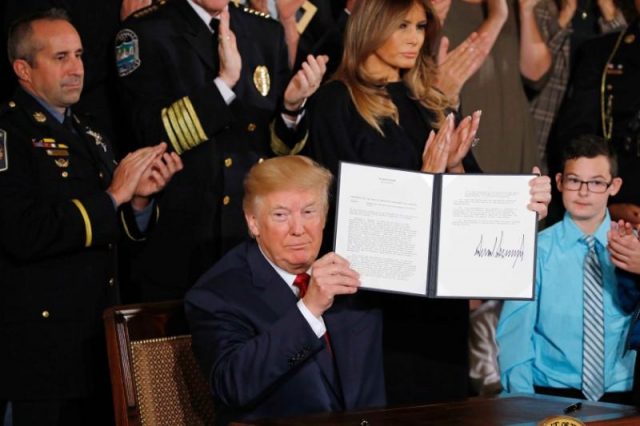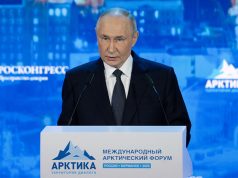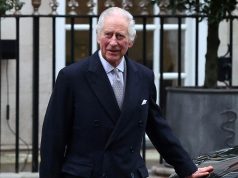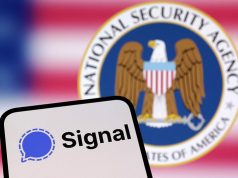
WASHINGTON — U.S. President Donald Trump declared the opioid crisis a public health emergency on Thursday, stopping short of a national emergency declaration he promised months ago that would have freed up more federal money.
Responding to a growing problem wreaking havoc in rural areas, Trump’s declaration will redirect federal resources and loosen regulations to combat opioid abuse, senior administration officials said on a conference call with reporters.
But it does not mean there will be more money to combat the crisis. Some critics, including Democratic lawmakers, said the declaration was meaningless without additional funding.
“This epidemic is a national health emergency,” Trump said at the White House. “Nobody has seen anything like what’s going on now. As Americans, we cannot allow this to continue.”
The announcement disappointed some advocates and experts in the addiction fight, who said it was inadequate to fight a scourge that played a role in more than 33,000 deaths in 2015, according to the U.S. Centers for Disease Control and Prevention. The death rate has kept rising, estimates show.
Opioids, primarily prescription painkillers, heroin and fentanyl, are fueling the drug overdoses. More than 100 Americans die daily from related overdoses, according to the CDC.
A White House commission on the drug crisis had urged Trump to declare a national emergency. On Wednesday, the president told Fox Business Network he would do so.
Officials told reporters on the conference call that Federal Emergency Management Agency funds that would have been released under a national emergency are already exhausted from recent storms that struck Puerto Rico, Texas and Florida.
The administration would have to work with Congress to help provide additional funding to address drug abuse, they added.
Under Thursday’s declaration, treatment would be made more accessible for abusers of prescription painkillers, heroin and fentanyl, while ensuring fewer delays in staffing the Department of Health and Human Services to help states grapple with the crisis.
‘Bad actors’
Trump said he would discuss stopping the flow of fentanyl, a drug 50 to 100 times more powerful than morphine, with Chinese President Xi Jinping during his visit to Asia next month.
In his remarks, Trump said the U.S. Postal Service and Department of Homeland Security were “strengthening the inspection of packages coming into our country to hold back the flood of cheap and deadly fentanyl, a synthetic opioid manufactured in China.”
He added he would consider bringing lawsuits against “bad actors” in the epidemic. Several states have sued opioid manufacturers for deceptive marketing. Congress is investigating the business practices of manufacturers.
The president also said the government should focus on teaching young people not to take drugs. “There is nothing desirable about drugs. They’re bad,” he said.
Thursday’s declaration also allows the Department of Labor to issue grants to help dislocated workers affected by the crisis. HIV/AIDS health funding would also be prioritized for those who need substance abuse treatment, officials said.
As a candidate, Trump promised to address the crisis, including by building a wall on the U.S.-Mexico border to stop the flow of illicit drugs, which he touched on in his speech.
Additional actions under the move would be announced in coming weeks by various agencies, officials said.









